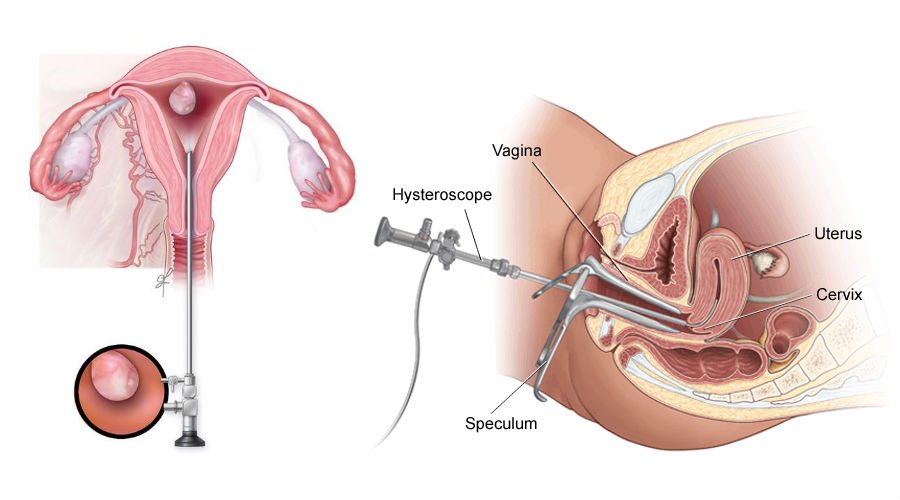
Understanding Hysteroscopy
Hysteroscopy is a minimally invasive gynecological procedure that allows direct visualization of the inside of the uterus using a thin, lighted tube called a hysteroscope. It is used to diagnose and treat conditions such as abnormal uterine bleeding, fibroids, polyps, adhesions, and congenital abnormalities. Hysteroscopy is safe, precise, and can often be performed on an outpatient basis.
Who Can Benefit from Hysteroscopy?
Hysteroscopy is recommended for women experiencing:
- Abnormal uterine bleeding or spotting between periods.
- Infertility or repeated miscarriages.
- Suspected uterine polyps, fibroids, or adhesions.
- Abnormal findings on ultrasound or hysterosalpingography (HSG).
- Congenital uterine anomalies affecting fertility.
How Hysteroscopy Works
Hysteroscopy is typically performed under local or general anesthesia. The hysteroscope is inserted through the vagina and cervix into the uterus, allowing the gynecologist to examine the uterine cavity in detail. Small instruments can be passed through the hysteroscope to remove polyps, fibroids, or scar tissue if needed. The procedure is quick, often completed within 15–30 minutes, with minimal discomfort and fast recovery.
Advantages of Hysteroscopy
Hysteroscopy provides several benefits over traditional surgical approaches:
- Minimally invasive with no external incisions.
- Accurate diagnosis of intrauterine problems.
- Immediate treatment during the same procedure if required.
- Reduced recovery time and faster return to daily activities.
- Improved fertility outcomes for selected cases.
Why Choose Dr. Parth Joshi for Hysteroscopy
Gold Medalist Gynecologist
Expertise in Minimally Invasive Gynecologic Procedures
Personalized Surgical Plans
Advanced Hysteroscopy Equipment
Accurate Diagnosis and Effective Treatment
Comprehensive Support & Counseling
Take the First Step
Hysteroscopy is a safe, precise, and effective solution for diagnosing and treating uterine conditions. With guidance from Dr. Parth Joshi, you can receive accurate evaluation, appropriate treatment, and compassionate care, helping improve reproductive health and fertility outcomes.

